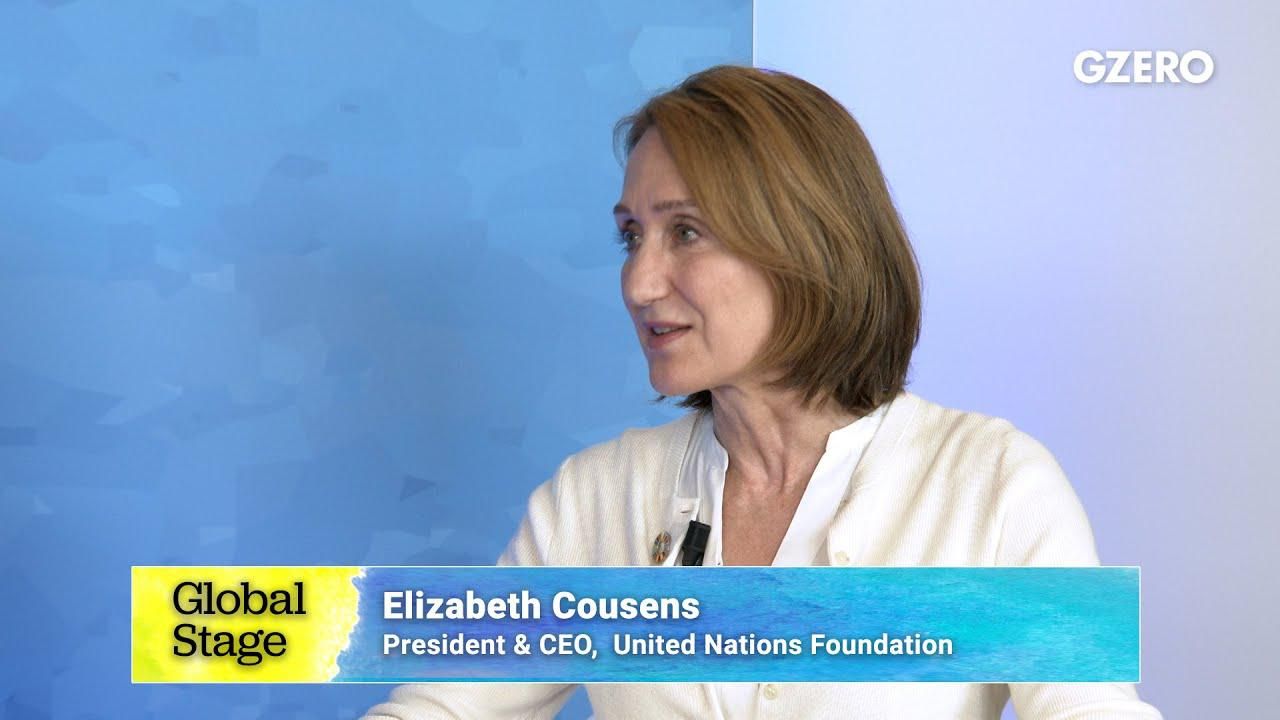Crisis Recovery
In a food crisis, export controls are "worst possible" thing to do, says UN Foundation chief

Export Controls Are “Worst Possible” Thing To Do in Food Crisis | Global Stage | GZERO Media

The war in Ukraine has aggravated a global food crisis that started with the pandemic. Is there anything we can do about it?
The UN is trying, but there needs to be a much more ambitious response to what is already a catastrophic humanitarian crisis, UN Foundation President Elizabeth Cousens said during a Global Stage livestream discussion hosted by GZERO in partnership with Microsoft at the World Economic Forum in Davos, Switzerland. She was joined by Ian Bremmer, president of Eurasia Group and GZERO Media; Brad Smith, president and vice chair of Microsoft; and moderator Nicholas Thompson, CEO of The Atlantic.
That means looking "at the underlying fundamentals of this crisis as well beyond the most immediate and acute needs, how we address food security at large."
For instance, Cousens explains, export controls might be tempting when you want to "fall back within your own borders and preserve. But it's the worst possible thing you could do at a moment like this."
Still, many people will want a nationalist response if they can't afford basic food staples. And she gets it: "That's a fair frustration to understand, even if the solutions may not be the right remedy."
Watch more of this Global Stage discussion: "Crisis in a digital world"
Think you know what's going on around the world? Here's your chance to prove it.
20: The number of fallen Ukrainian athletes and coaches depicted on a Ukrainian skeleton racer’s helmet at the Winter Olympics, which prompted the International Olympic Committee (IOC) to disqualify him on Thursday.
The Russian government has begun blocking the popular messaging apps WhatsApp and Telegram in a sweeping crackdown aimed at forcing Russians to use a state-backed alternative called MAX, which critics say would enable censorship and surveillance.